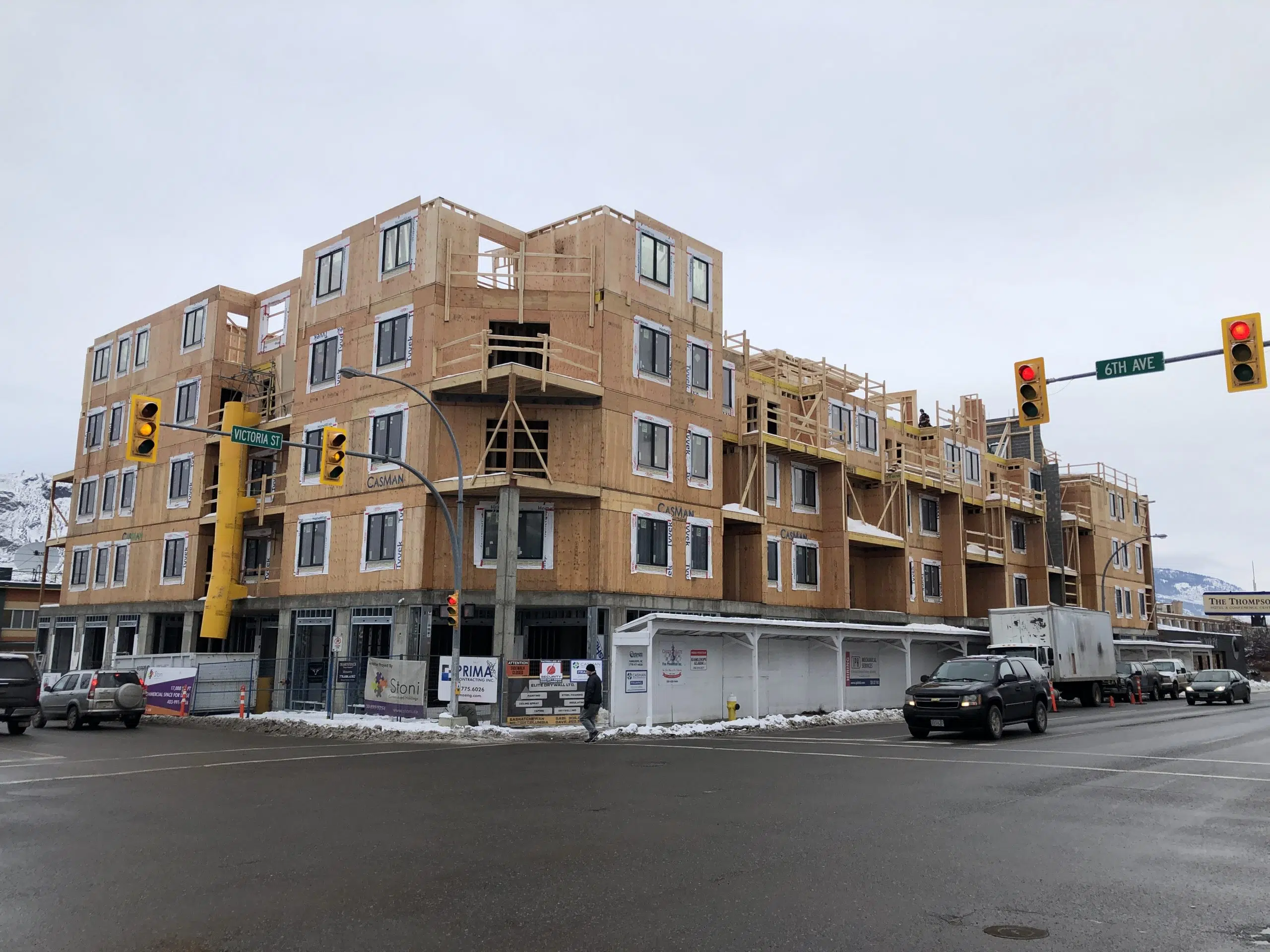
The new 112 unit mixed housing development housing under construction in downtown Kamloops. (Photo via Victor Kaisar)
The City of Kamloops is looking into whether it can incentivize the construction of more purpose-built rental housing units.
Community Planning Manager Stephen Bentley says they’re looking into potentially using revitalization tax exemptions and development cost charge reductions or exemptions to spur on this type of housing development.
“We know that there is an overall housing affordability issue going on city-wide, and really nationwide and we’ve also got some provincial requirements to basically facilitate a certain number of housing units,” Bentley told Radio NL.
“So we’re kind of trying to do what we can as far as updating regulations to allow more housing but also looking at some incentives.”
Development Cost Charges (DCCs) are levies on new developments that are paid by developers. It helps the city cover the cost of necessary upgrades – water, sewer, roads, and parks – brought on by growth.
Bentley says DCCs are currently waived for not-for-profit housing projects but not for-profit affordable rental housing.
“The City could update the bylaw to waive development cost charges on all purpose-built affordable rental housing to incentivize the construction of new rental accommodation,” he said, in a December report to the City’s Economic Health Select Committee.
“The City waived and funded $1.48 million in development cost charges through the Affordable Housing Reserve Fund for affordable not-for-profit housing projects from
2018 to 2022.”
Revitalization tax exemptions are already in place to spur development of commercial buildings as well as multi-family housing downtown and on North Shore. It is also in place to encourage the redevelopment of hotel sites and the construction of new daycares in some parts of Kamloops.
Essentially, the property owners get a ten year break on their municipal tax bills, based on the assessed value before and after a project.
Bentley notes the two incentives will have impacts to city revenues – as was witnessed during the 2024 utility rate debate – which would have to be considered prior to making any changes.
“The fact that the province is mandating local governments to facilitate more housing, that for sure influenced our decision to pursue these potential incentives,” Bentley said. “We’re just looking at potentially more of the parameters of how these bylaws might work, trying to answer some of these financial questions that we’ve been talking about.”
If all goes well, Bentley says the issue could be before City Council for a final decision sometime this summer.
“We don’t have the answers necessarily on how that budgetary process would happen, so that is something we’re still investigating,” Bentley said. “We’re looking into how to recoup potential lost revenue, if we go this route.”
“The intent is we would come back to that economic health committee in March and give them some more information and then the idea is that hopefully we could make a decision on are we going to go forward with one or both of these bylaws.”













